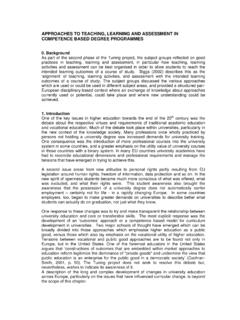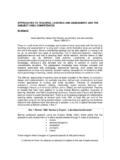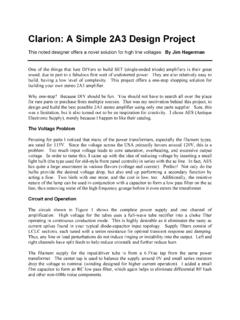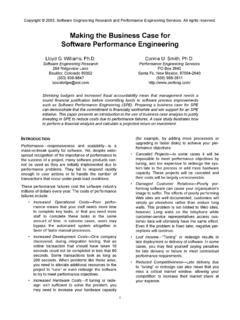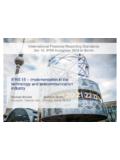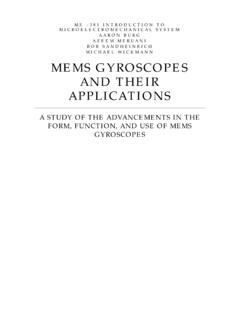Transcription of TTuning ingles 08.indd 1uning ingles 08.indd 1 …
1 tuning ingles 1 tuning ingles 16/2/08 13:37:146/2/08 13:37:14 tuning ingles 2 tuning ingles 26/2/08 13:37:166/2/08 13:37:16 Universities contribution to the Bologna ProcessAn introduction2nd EditionTuning ingles 3 tuning ingles 36/2/08 13:37:166/2/08 13:37:16 tuning ingles 4 tuning ingles 46/2/08 13:37:166/2/08 13:37:16 Universities contribution to the Bologna ProcessAn introduction2nd EditionEdited by Julia Gonz lez and Robert WagenaarTuning ingles 5 tuning ingles 56/2/08 13:37:176/2/08 13:37:17 tuning Educational Structures in EuropeThe name tuning was chosen for the project to refl ect the idea that uni-versities do not look for uniformity in their degree programmes or any sort of unifi ed, prescriptive or defi nitive European curricula but simply for points of reference, convergence and common understanding. The protection of the rich diversity of European education has been para-mount in the tuning project from the very start and the project in no way seeks to restrict the independence of academic and subject special-ists, or undermine local and national academic authority.
2 Publicaciones de la Universidad de DeustoApartado 1 - 48080 Bilbaoe-mail: 978-84-9830-132-8 Legal Deposit: BI-Printed in Spain/ Impreso en Espa aThe tuning project is supported by the European Commission through the Socrates and Tempus programmes (of the Directorate-General for Education and Culture)This publication refl ects the views of the authors only, and the Euro-pean Commission cannot be held responsible for any use which may be made of the information contained therein. tuning ProjectAlthough all material that has been developed as part of the tuning project is owned by its formal participants, other Higher Education Institutions are free to test and use the material after publication, provided that the source is acknowledged. No part of this publication, including the cover design, may be repro-duced, stored or transmitted in any form or by any means, whether electronical, chemical, mechanical, optical, by recording or photo-copying, without prior permission of the publisher.
3 2nd edition, february 2008 tuning ingles 6 tuning ingles 66/2/08 13:37:176/2/08 13:37:17 Content 1. Introduction 9 2. tuning methodology 13 3. Competences in the teaching and learning process 25 4. ECTS, student workload and learning outcomes 55 Introduction 55 Educational structures, learning outcomes, workload and the calculation of ECTS credits 57 Student workload, teaching methods and learning out-comes: the tuning approach 82 5. Approaches to teaching, learning and assessment in compe-tence based degree programmes 91 6. Quality enhancement at programme level: the tuning approach 119 7. Glossary of tuning terms 1477 tuning ingles 7 tuning ingles 76/2/08 13:37:176/2/08 13:37:17 tuning ingles 8 tuning ingles 86/2/08 13:37:186/2/08 13:37:1891. IntroductionTuning Educational Structures in Europe is a university driven project which aims to offer a concrete approach to implement the Bologna Process at the level of higher education institutions and subject areas.
4 The tuning approach consists of a methodology to (re-) design, develop, implement and evaluate study programmes for each of the Bologna cycles. It can be considered valid worldwide, since it has been tested in several continents and found , tuning serves as a platform for developing reference points at subject area level. These are relevant for making programmes of studies comparable, compatible and transparent. Reference points are expressed in terms of learning outcomes and competences. Learning outcomes are statements of what a learner is expected to know, understand and be able to demonstrate after completion of a learning experience. According to tuning , learning outcomes are expressed in terms of the level of com-petence to be obtained by the learner. Competences re present a dynamic combination of cognitive and meta-cognitive skills, knowledge and under-standing, interpersonal, intellectual and practical skills, and ethical values.
5 Fostering these competences is the object of all educational programmes, which build on the patrimony of knowledge and understanding devel-oped over a period of many centuries. Competences are developed in all course units and assessed at different stages of a programme. Some competences are subject-area related (specifi c to a fi eld of study), others are generic (common to any degree course). It is normally the case that competence development proceeds in an integrated and cyclical manner throughout a programme. To make levels of learning comparable the tuning subject area groups have developed cycle (level) descriptors which are also expressed in terms of to tuning , the introduction of a three cycle system implies a change from a staff centred approach to a student oriented approach. It is the student that has to be prepared as well as possible for his or her future role in society. Therefore, tuning has organized a Europe-wide consultation process including employers, graduates and academic staff /faculty to identify the most important competences that should be formed or developed in a degree programme.
6 The outcome of this con-sultation process is refl ected in the set of reference points generic and subject specifi c competences identifi ed by each subject area. tuning ingles 9 tuning ingles 96/2/08 13:37:186/2/08 13:37:1810 Besides addressing the implementation of a three cycle system, tuning has given attention to the Europe-wide use of the student workload based European Credit Transfer and Accumulation System (ECTS). Accor-ding to tuning ECTS is not only a system for facilitating the mobility of students across Europe through credit accumulation and transfer; ECTS can also facilitate programme design and development, particularly with respect to coordinating and rationalising the demands made on students by concurrent course units. In other words, ECTS permits us to plan how best to use students time to achieve the aims of the educational pro-cess, rather than considering teachers time as a constraint and students time as basically limitless.
7 According to the tuning approach credits can only be awarded when the learning outcomes have been met. The use of the learning outcomes and competences approach might also imply changes regarding the teaching, learning and assessment me thods which are used in a programme. tuning has identifi ed approaches and best practices to form specifi c generic and subject specifi c competences. Finally, tuning has drawn attention to the role of quality in the process of designing or re-designing, developing and implementing study pro-grammes. It has developed an approach for quality enhancement which involves all elements of the learning chain. It has also developed a number of tools and has identifi ed examples of good practice which can help in-stitutions to boost the quality of their study programmes. Launched in 2000 and strongly supported, fi nancially and morally, by the European Commission, the tuning project now includes the vast majority of the Bologna signatory work of tuning is fully recognized by all the countries and major players involved in the Bologna Process.
8 At the Berlin Bologna follow-up conference which took place in September 2003, degree programmes were identifi ed as having a central role in the process. The conceptual framework on which the Berlin Communiqu is based is completely co-herent with the tuning approach. This is made evident by the language used, where the Ministers indicate that degrees should be described in terms of workload, level, learning outcomes, competences and profi le. As a sequel to the Berlin conference, the Bologna follow-up group has taken the initiative of developing an overarching Framework for Quali-fi cations of the European Higher Education Area (EQF for HE) which, in concept and language, is in full agreement with the tuning approach. tuning ingles 10 tuning ingles 106/2/08 13:37:186/2/08 13:37:1811 This framework has been adopted at the Bergen Bologna follow-up con-ference of May 2005. The EQF for Higher Education has made use of the outcomes both of the Joint Quality Initiative (JQI) and of Tu ning.
9 The JQI, an informal group of higher education experts, produced a set of criteria to distinguish between the different cycles in a broad and general manner. These criteria are commonly known as the Dublin descriptors . From the beginning, the JQI and the tuning project have been considered complementary. The JQI focuses on the comparability of cycles in general terms, whereas tuning seeks to describe cycle de-gree programmes at the level of subject areas. An important aim of all three initiatives (EQF, JQI and tuning ) is to make European higher educa-tion more transparent. In this respect, the EQF is a major step forward because it gives guidance for the construction of national qualifi cation frameworks based on learning outcomes and competences as well as on credits. We may also observe that there is a parallel between the EQF and tuning with regard to the importance of initiating and maintaining a dialogue between higher education and society and the value of con-sultation in the case of the EQF with respect to higher education in general; in that of tuning with respect to degree profi les.
10 In the summer of 2006 the European Commission launched a European Qualifi cation Framework for Life Long Learning. Its objective is to encom-pass all types of learning in one overall framework. Although the concepts on which the EQF for Higher Education and the EQF for LLL are based dif-fer, both are fully coherent with the tuning approach. Like the other two, the LLL variant is based on the development of level of competences. From the tuning perspective both initiatives have their value and their roles to play in the further development of a consistent European Education brochure contains the key general documents produced by the Tun-ing project . These refl ect in synthesis the consensus reached by the tuning membership about the topics mentioned above. All the chapters have been published before in the more extended tuning 1 and tuning 2 volu-mes. These volumes can be found on the tuning website. For the purpose of this brochure the contributions have been revised and updated.
